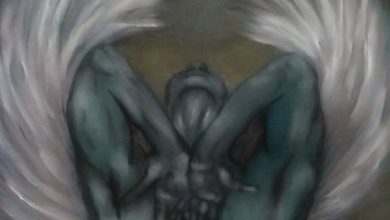There is something thoroughly endearing about Huckleberry. It is incredible that this noble savage, this social outcast should emerge as one of the most memorable characters seen in the nineteenth century American novel. For all his refusal to be bogged down by unfavorable circumstances, for all his bravado and nonchalance, he is just a child of fourteen with some deeply traumatic childhood experiences.
Understanding Huck as a traumatized child requires one to trace his journey from The Adventures of Tom Sawyer through The Adventures of Huckleberry Finn. In doing so, we find that his traumatic experience of child abuse is spread across four broad areas : neglect, physical violence, psychological abuse and social deprivation.
Huck, the juvenile outcast in Tom Sawyer is an orphan whose mother has died and whose father has abandoned him by the time we meet him in Huckleberry Finn. The haunting absence of a mother leaves him famished for maternal love, often without his realising it. Mark Altschuler explains his attachment to Mary Jane and resistance towards Aunt Sally highlighting how, like other mother-deprived children he constantly attempts to free himself “surrogate mother figures”.
The physical and psychological violence of child abuse is inflicted on him by the only person he could call his own. Pap is a figure not only beyond redemption but also beneath condemnation. A resentful tyrant, he sees Huck as his property and his methods of torture range from physical assault to solitary confinement. It is significant that his tirade against society trying to take his “property” is accompanied by one against government policy about the “ni**ers”. Significantly, the father-son relationship functions within a master-slave dynamic for Pap will resort to anything to show “who is Huck’s boss” :
“You call licking a man’s son inappropriate. I call it a father-son bonding.’
‘Desensitization‘, a psychological phenomenon arising out of constant exposure to violence is seen in Huck’s matter-of-fact approach to violence whether it is killing a pig or witnessing people being shot.
Psychologically, the twin forces of neglect and child abuse have two significant effects on Huck : it impacts his image of the Self and also makes him susceptible to dominant-submissive behavioral patterns. Huck’s proclivity to give in to dominant-submissive pattern is explicitly brought out when we analyse how readily he adheres to the dictates of the King and the Duke despite seeing through them and it is no surprise that Pap becomes his frame of reference : ” I learnt that the best way to get along with his kind of people is to let them have their own way.” In this regard, his adoration for Tom is also informed by his constant tendency to ‘measure up’ to Tom. Tom’s taking over of the action towards the final scenes of the book, widely dismissed for its seemingly arbitrary relegation of Huck’s agency, might actually be interpreted in a different light provided this lingering aspect childhood trauma is factored in.
Socially, Huck is a rootless weed without any kith or kin. The trauma of not belonging marks Huck’s childhood and all he remembers of his father and mother is that “they were always fighting”. His rootlessness is most poignantly brought out in chapter seventeen of Tom Sawyer where, on returning from their supposed death, Tom and Injun’ Joe are embraced by their family members but there is nobody to remember Huck! The tragedy of being without a family is captured in the lines :
“Huck stood there abashed and uncomfortable not knowing what to do or where to hide from so many unwelcoming eyes”
This is when Tom, on being embraced by Aunt Polly exclaims : “Somebody’s got to be glad to see Huck.” (emphasis added)
Interestingly, childhood trauma also moulds Huck along different planes. Necessity sure is the mother of invention and Huck abounds in the inventive faculty: he has a gift of the gab, is quick on his feet and is a weasel when it comes to extricating himself from sticky situations. Absence of love and care also makes him responsive to the presence of kindness whenever he comes across it. Consequently, he becomes sensitive to the value of empathy without being conscious of it. When a certain ‘Uncle Jake’s’ in Tom Sawyer is kind enough to give him some food, he testifies of his goodness :
“That’s a mighty good ni**er, Tom. He likes me because I don’t act as if I was above him”
Similarly, Jim’s regret at having once hit his daughter in this context elicits a great degree of sympathy from Huck as here he witnesses a parental-paternal violence that is regretted, something he never saw.
Huck has to go to the extent of faking his death in order to escape both the forces of Aunt Sally and Pap which is why, The Adventures of Huckleberry Finn might as well be read as the escape of a traumatized child into the unknown. The ‘sivilizing’ force of Aunt Sally and the savagery of his father both try to claim him as an individual and significantly , in terms of plot, it is this very escape from trauma in which he undertakes the psycho-geographical journey with Jim ( also been viewed by some as an alloparent ) and it is this journey, with all its hardships and companionship, that brings the two together.
The absence of caring and being cared, which had been at the root of his childhood trauma is addressed in this very journey where he discovers Jim as a human being, deserving of kindness. Furthermore, it is this empathetic force and not of Pap’s flawed sense of masculinity or the Widow’s suffocating ‘sivilization’ ( both of which have no place for people like Jim ) that this unloved, traumatized child is able to work out his own salvation and fashion himself on his own terms.


